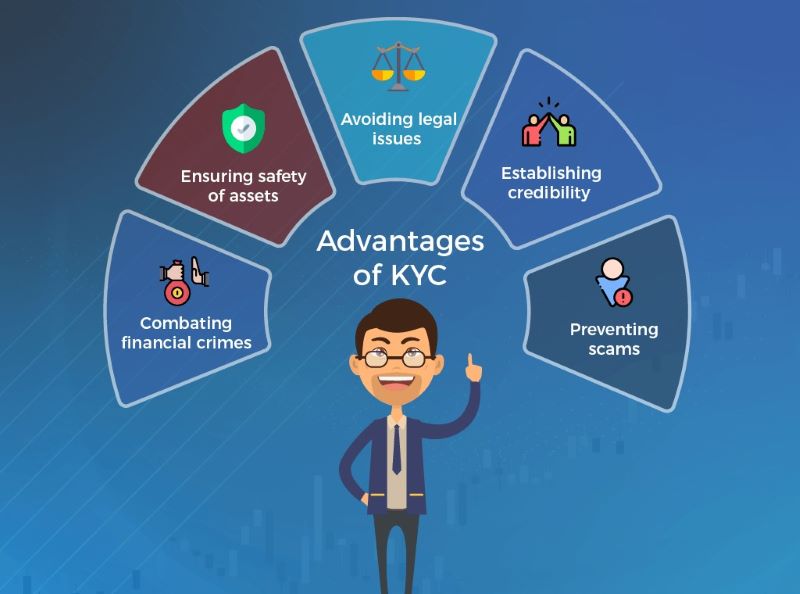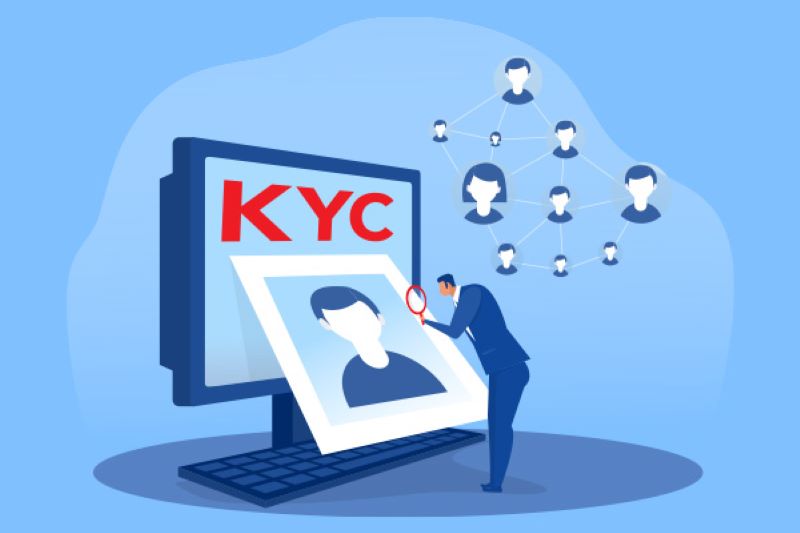The advantages of KYC in today’s market are more critical than ever as businesses seek to enhance security, comply with regulations, and build stronger customer relationships. By verifying customer identities, KYC not only reduces the risk of fraud and financial crime but also helps organizations meet legal requirements and tailor services to individual needs. In this article, we will explore three key advantages of KYC that are shaping the modern financial landscape.
What is KYC?
KYC (Know Your Customer) is the process that financial institutions and businesses use to verify the identity of their customers. The goal of KYC is to ensure that businesses know who their customers are, thereby minimizing risks associated with fraud, money laundering, terrorist financing, and other illegal financial activities. This process typically involves collecting personal information, identification documents, and sometimes checking the customer’s financial history. KYC is an important factor in complying with legal regulations and enhancing transparency in financial operations.
By implementing KYC procedures, businesses can enjoy several advantages of KYC, including:
- Mitigating risks: KYC helps identify and prevent fraudulent activities, protecting both the business and its legitimate customers.
- Building trust: KYC demonstrates a commitment to compliance and security, fostering trust among customers and partners.
- Enhancing customer due diligence: KYC enables businesses to better understand their customers and their financial activities, facilitating responsible business practices.
KYC is a critical process for businesses operating in the financial sector and beyond. By understanding and implementing effective KYC procedures, organizations can reap the advantages of KYC and create a safer and more transparent environment for all stakeholders.
Enhanced Security and Reduced Fraud Risk – A one of Advantages of KYC
Enhancing security and reducing fraud risk is one of the primary advantages of KYC (Know Your Customer), particularly in the financial and blockchain sectors. By implementing KYC, businesses can verify the identities of their customers, thereby ensuring that users are who they claim to be. This helps prevent bad actors from using fake identities or misleading information to carry out fraudulent activities, such as money laundering or terrorist financing.
Furthermore, KYC creates a strong layer of protection for both organizations and users by detecting and preventing suspicious or potentially illegal transactions. As a result, KYC not only enhances security but also minimizes risks for financial institutions, cryptocurrency exchanges, and blockchain projects. This increases user confidence in the platform and the financial system. Compliance with KYC also helps businesses meet regulatory requirements, ensuring transparency and security in their operations.
Compliance with Legal Regulations
Compliance with legal regulations is one of the most important advantages of KYC (Know Your Customer) in today’s market. KYC helps financial institutions and businesses ensure that they are operating within the legal framework and meeting government regulatory requirements. Implementing KYC goes beyond simply verifying customer identities; it’s a way for businesses to demonstrate their compliance with anti-money laundering (AML) and counter-terrorist financing (CFT) laws.
In the context of globalization and increasing financial regulations, KYC compliance is particularly crucial. Regulatory bodies are increasingly demanding that businesses demonstrate that they are taking necessary measures to control risks and protect the financial system. Businesses that fail to comply can face severe penalties, including fines and the loss of operating licenses.
Moreover, implementing KYC also helps strengthen trust from customers and business partners. When customers know that a business is implementing strict security measures and complying with the law, they will feel more secure when transacting. This not only contributes to building credibility but also enhances the business’s competitiveness in the market.
Improved Service Quality and Customer Relationships
Improved Service Quality and Customer Relationships is one of the significant advantages of KYC (Know Your Customer) in today’s market. When businesses implement KYC procedures, they not only verify customer identities but also gather detailed information about their needs and preferences. This allows businesses to personalize the services and products they offer.
Understanding customers helps businesses develop more effective marketing strategies, thereby providing products that better suit the actual needs of the market. Customers feel heard and better served when services are personalized, which not only increases satisfaction but also creates brand loyalty.
Furthermore, KYC also helps businesses identify potential customers and build better relationships with them. When businesses can interact and communicate effectively, they build trust and engagement with customers, thereby increasing customer retention rates and reducing marketing costs.
Ultimately, good customer relationships and improved service quality will help businesses attract new customers through referrals and word-of-mouth. In an increasingly competitive landscape, this is crucial for maintaining and expanding market share.
The advantages of KYC in today’s market are essential for fostering a secure and trustworthy environment for both businesses and customers. By enhancing security measures, ensuring regulatory compliance, and improving customer relationships, KYC practices play a crucial role in the success of financial institutions and blockchain enterprises alike. As noted by Blockchainbulletinweekly, embracing KYC not only mitigates risks but also paves the way for a more transparent and efficient marketplace, ultimately benefiting all stakeholders involved.



